Dot.school: The Tokyo-Based Weekend School That Is All About Borderless Learning
Fostering Creativity, Internationalism and Entrepreneurship in Children
Aki Higuchi founded a school that enables elementary school students to become global leaders… all without hierarchies and homework.
Although Japan has one of the best-educated population in the world, the Japanese education system is not without its problems. With over-reliance on homework, memorization and tests, as well as limited opportunities for education in English, internationally-minded parents may be concerned that their child’s curiosity and creativity is not being given the attention it deserves. Dot.school fills the gap by offering weekend classes in English to 7-12-year-olds that enable them to develop the self-awareness and growth mindset necessary to become global leaders.
Launched in October 2017 by Aki Higuchi, dot.school’s unique content and classroom atmosphere is turning the heads of media outlets and educational professionals alike.
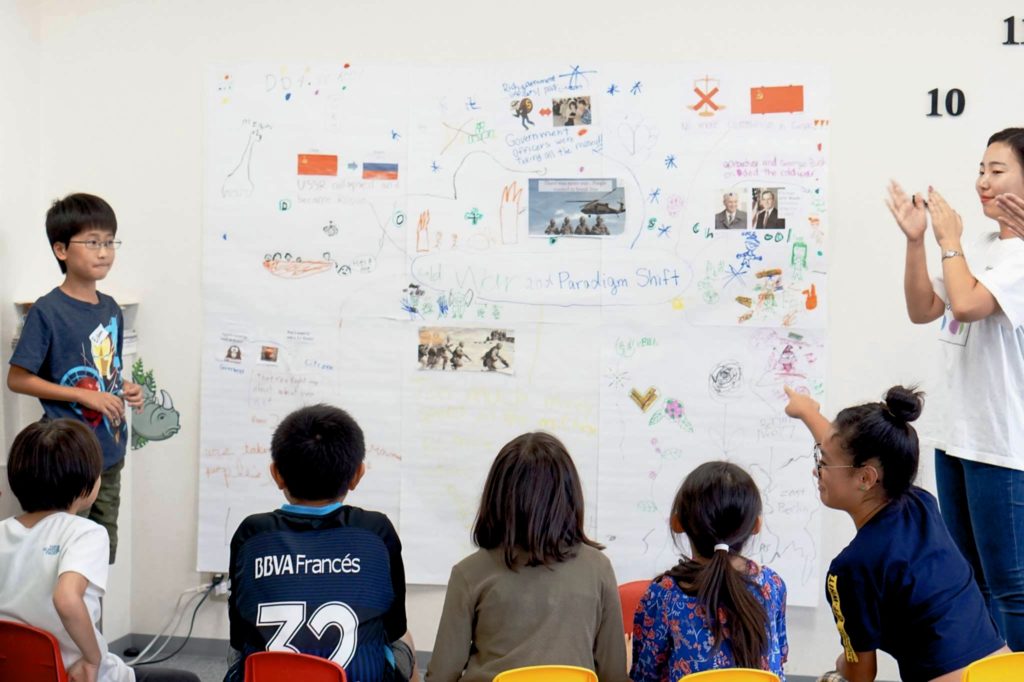
Class in session: The topics students learn about and discuss at dot.school are not some of the easiest.
From one-to-one to peer learning
Higuchi has experienced first-hand the benefits of open-mindedness and internationalism for a developing child. Born in Japan to a Japanese father and Chinese mother, her parents enlisted the help of international students to take care of her growing up. Inspired by her own childhood, she founded Omsister, a bilingual babysitting and tutor service that connects students with parents looking for childcare. The bilingual babysitters pick the children up from school and tutor them in English. Building on the success of Omsister, Higuchi saw a demand for group education with the same philosophy.

Aki Higuchi, founder of dot.school.
“We realized that peer learning is equally important as one-to-one learning and we wanted to deliver content that wasn’t being covered by most elementary schools in Japan.”
Innovative and flexible class content
As well as one-off events and a yearly summer camp, two courses are offered for regular students at dot.school, the World Course and the Money Course.
“The World Course focuses on learning about the world through liberal arts principles,” explains Higuchi. The children discuss international relations, human rights and environmental issues and are encouraged to express their opinions, under the approach that, “there is no one right answer.”
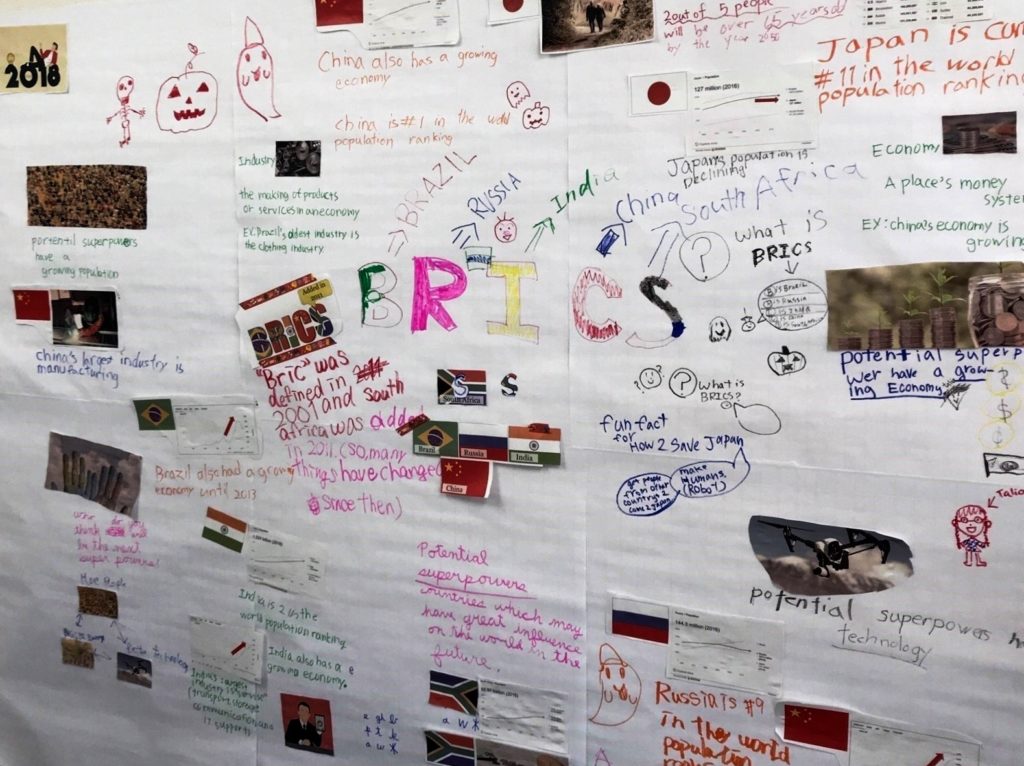
What is BRICS? Is also a topic dot.school students can openly talk about.
The other side to the coin is the Money Course, which is “about encouraging them to have entrepreneurial skills.” It’s almost unheard of for children as young as seven to learn about tax, stocks and Fintech, but Higuchi believes strongly in the importance of financial literacy for children – although this is something that can be frowned upon in Japan.
The children discuss international relations, human rights and environmental issues.
“The Money Course is about ownership, creativity, things you can’t usually foster in traditional Japanese schools.” Although Higuchi’s carefully curated curriculum makes for a great starting point, the content is flexible – it’s adapted to the needs and interests of the class. “We value ownership. We ask them what they want to do and we build the content together.”
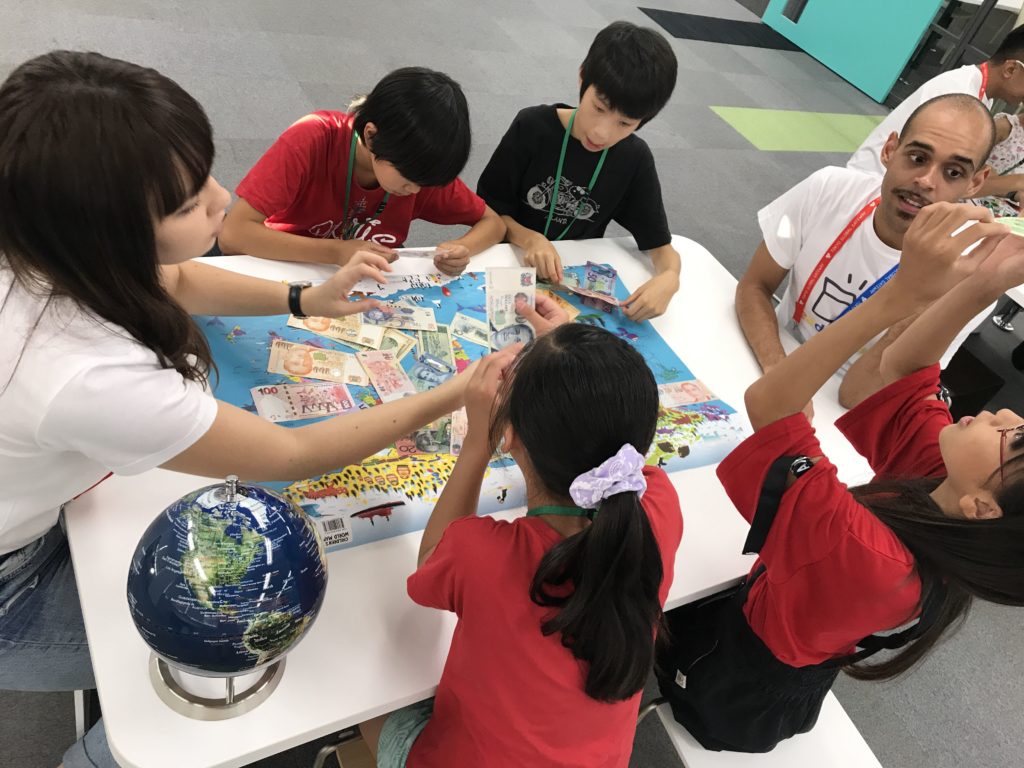
Dot.school’s Money Course is “about encouraging [children] to have entrepreneurial skills,” says founder Aki Higuchi.
Playful class atmosphere
Lesson content and bilingualism aside, what really sets dot.school apart is its unique classroom atmosphere. Higuchi embraces the concept of “borderless learning” to create an environment that is flexible, non-hierarchical, creative and, most importantly, fun.
“We want to break the border between play and study,” Higuchi explains. “I found that, when you think studying is like play, your learning will be much easier. So we are trying to create a playful environment in the school.”
At dot.school, there’s no homework, very few tests, and no pressure.
The teacher-student hierarchy is also a border to be removed: “We don’t let the kids call us ‘teacher,’ we say ‘mentor’ because we don’t want them to think teachers are perfect people who are there to judge them. We want them to feel that they are in an inclusive environment.”
This is all very well, but what if a child becomes disruptive or refuses to participate? How do you manage behavioral issues without a hierarchical structure? Apparently, at dot.school, these are problems that rarely arise but when they do, Higuchi’s solutions rely on respecting the autonomy of the child, rather than coercion.
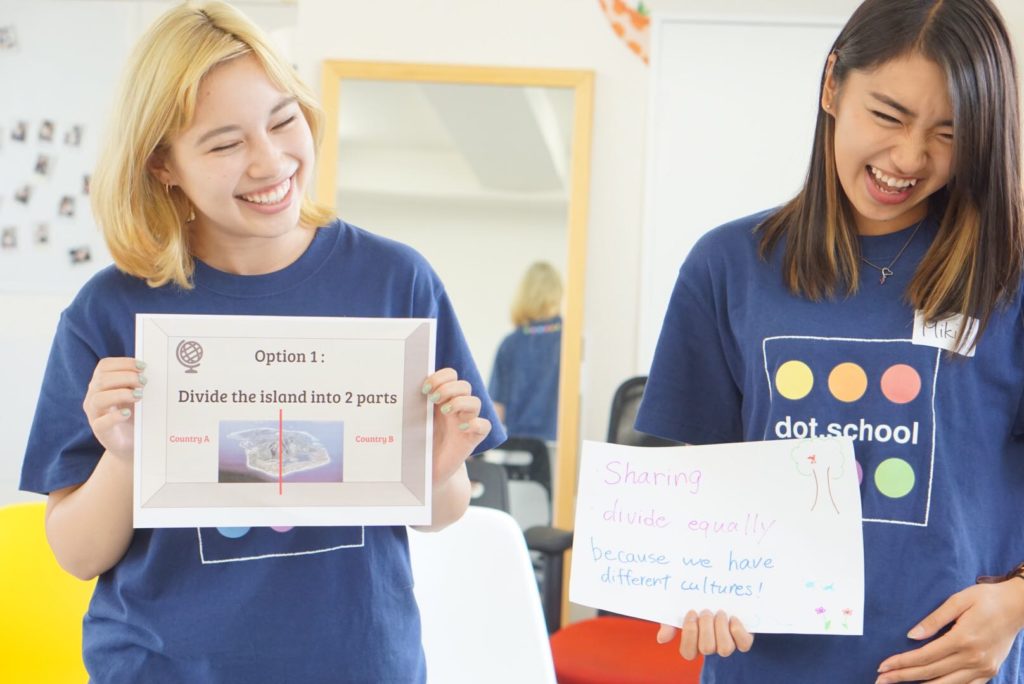
Mentors, not “teachers”: Teachers at dot.school are ‘mentors,’ because “we don’t want [children] to think teachers are perfect people who are there to judge them,” Higuchi explains.
Borderless learning makes lifelong learners
Another aspect of borderless learning is developing lifelong learners who don’t see education as something restricted to the classroom. Higuchi is adamant that her students test their skills in the real world, such as a recent project where they set up a one-day café entirely by themselves. The children set a goal of making ¥50,000 in an hour, which Higuchi thought was ambitious, but they made over ¥70,000, which was donated to charity.
“They’re so creative and we always want to make the most of their creativity in the real world. Sometimes, adults belittle their creativity because we perceive them as a kid. But we have a lot of things we can learn from them, actually.”
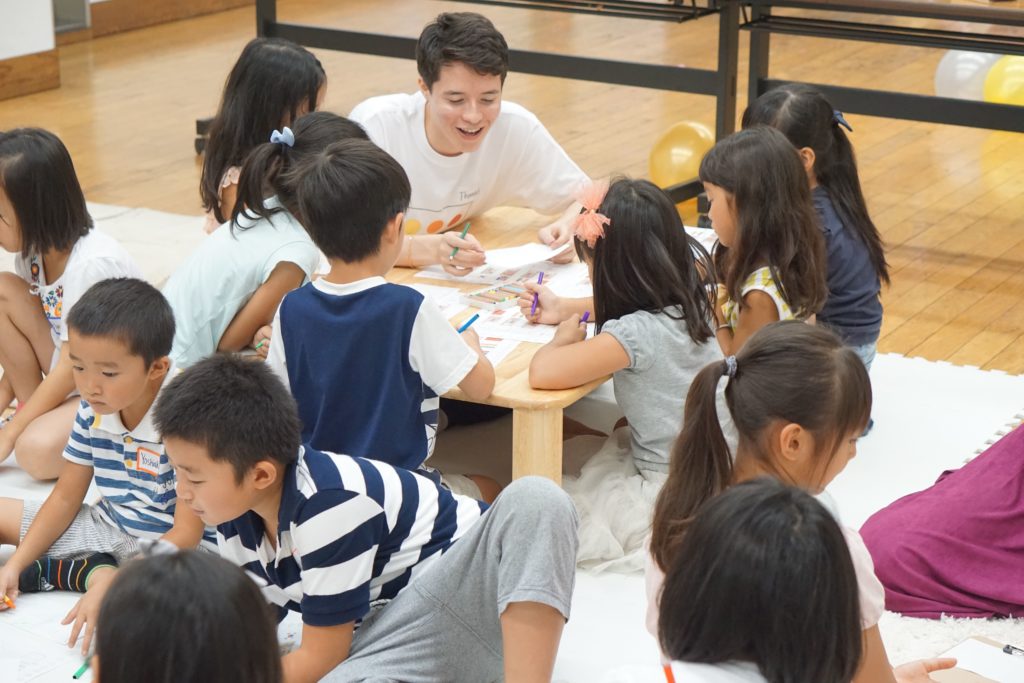
A regular class day at dot.school.
At dot.school, there’s no homework, very few tests, and no pressure. In a country where juku (cram school) reigns supreme in the education system, this is practically revolutionary and makes dot.school the perfect activity for parents who are worried that their children are already overworked. Because the students are enjoying themselves, they don’t get hung up on studying and are more than happy to take the learning home.
“Kids don’t think that they are coming to school, they’re coming here to play with the mentors,” explains Higuchi. “They absorb a lot of knowledge naturally and then they go home. Many parents give us feedback saying that at the Sunday dinner table, they’re talking about human rights or what they did in today’s class.”
Now only about two years since its opening, dot.school’s revolutionary way of approaching education is also slowly affecting Japan as a whole. The school became the first private-sector program to be chosen by the Tokyo Metropolitan Government for its brand new initiative, the Tokyo Global Gateway (TGG), a massive educational facility in Koto Ward which opened in October 2018.
With innovative content and a unique classroom atmosphere, dot.school fills a gap in Tokyo’s educational ecosystem for parents who wish to encourage their children’s passion and energy, all while learning important life skills and furthering their education in English.
Savvy X dot.school Special Campaign
If you’re interested in learning more about dot.school, start by applying for a FREE trial lesson using this inquiry form. In the “Questions, requests, concerns” part write “#FromSavvy.” This will give you a 50% discount of the initial registration fee (¥12,000 -> ¥6,000) if you decide to enroll your child at the school later. Offer is valid until May 31, 2019.
Dot.school is also recruiting enthusiastic, English speaking mentors who are great with kids and believe in the company vision of borderless learning. Contact the school with your resume to apply at hello@dotschool.org

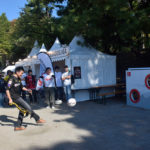











Leave a Reply